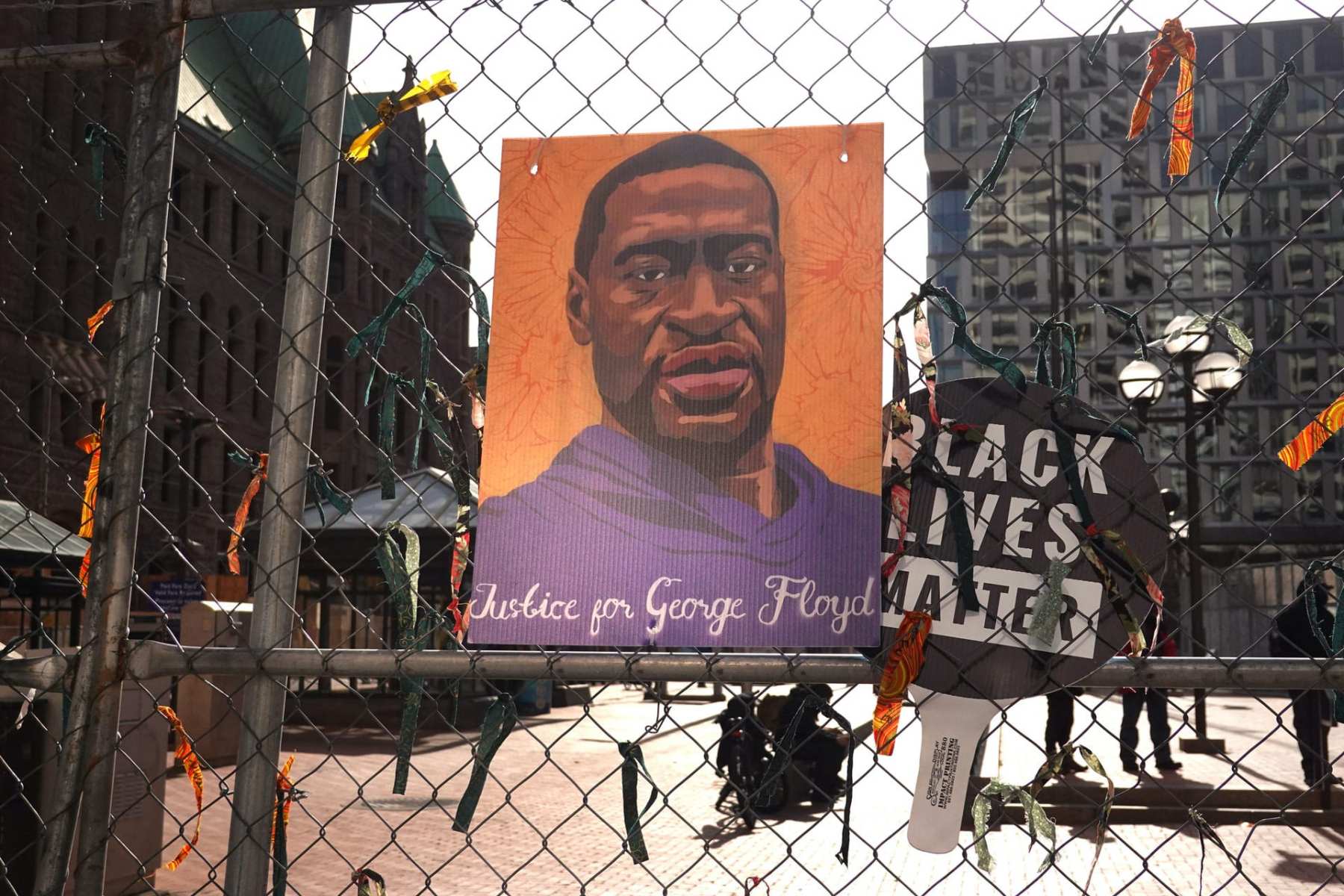Editor’s note: Derek Chauvin was convicted of murder and manslaughter in the George Floyd case on April 20, 2021.
At the center of one of the biggest police brutality cases in a generation is a teenage girl and a 10-minute video she shot on her cell phone. On May 25, 2020, Darnella Frazier pulled out her phone and captured the moments leading up to when George Floyd proclaimed he couldn’t breathe and begged for his mother. It was her cell phone video that was seen around the world.
On Tuesday, a week after her 18th birthday, Frazier was sworn in as a witness on the second day of the trial against former Minneapolis police officer Derek Chauvin, who is facing charges for Floyd’s murder. The trial is set to last a month. Frazier, a senior in high school, told the jury she was nervous at the start of her testimony. Later, Frazier shared that she tends to bottle things up and lives with social anxiety, so it is out of her comfort zone to be outspoken.
On the day Floyd was killed, Frazier was 17 and on her way to the Cup Foods convenience store in Minneapolis with her 9-year-old cousin to buy snacks — her cousin loves snacks, Frazier said.
As the cousins arrived around 7 p.m., they passed a police car where four officers, three of whom were on the ground, were huddled around a rear passenger door. Frazier sent her cousin into the store so she wouldn’t see what was happening, but Frazier hung back to get a better view of what they’d gotten a glimpse of: “A man terrified, scared, begging for his life,” she described to the jury. They were the first ones on the scene; the crowd would gather within minutes.
In court Tuesday, she wept through deep breaths when attorney Jerry Blackwell, who is prosecuting Chauvin pro bono for the attorney general’s office, asked her to identify Chauvin.
“It seemed like [Floyd] knew it was over for him … This was a cry for help, definitely,” Frazier said. She added that she felt as if Chauvin fed off the crowd’s pleas to release Floyd and kneeled in even harder in response.
Frazier emphasized that the violence she saw that day came “from the cops,” whom she said threatened to mace bystanders like her if they approached, echoing a testimony from earlier that day from Donald Williams II, a mixed martial artist who was outside of Cup Foods last May. Williams said another officer at the scene pushed him. The defense questioned Williams about the push and the words he yelled at Chauvin and the other officers, asking if it was fair to say Williams grew angrier and angrier. “I stayed in my body,” he said. “You can’t paint me out to be angry.”
Blackwell asked Frazier to describe how filming Floyd affected her life. You could hear the air leave her body in a deep sigh before she answered.
“When I look at George Floyd, I look at my dad, I look at my brothers, I look at my cousins, my uncles, because they’re all Black,” Frazier said. “I look at how that could have been one of them. It’s been nights I stayed up apologizing and apologizing to George Floyd for not doing more and not physically interacting and not saving his life.”
But, ultimately, Frazier added, it’s not about what she could have done — it’s about what Chauvin should have, she said.
Although Frazier has previously been identified in media reports, when she and three other girls, all minors at the time, witnessed Floyd’s final moments and took the stand on Tuesday, the court did not allow them to appear on video. Two were high school seniors who had gone to Cup Foods to get an aux cord to play music in the car and ended up witnessing Floyd’s death.
Frazier’s cousin also took the stand, telling the jury she was “sad and kind of mad,” that day.
“It felt like [Chauvin] was stopping his breathing, and it was kind of, like, hurting him,” the third grader said.
When asked to identify Chauvin in an image, she couldn’t remember his name, but recalled several times that he was the man she saw with his knee on Floyd’s neck, which he only removed after the paramedics physically removed Chauvin from Floyd.
Genevieve Hansen, 27, also testified Tuesday. The Minneapolis firefighter was at the scene but off duty that day, also witnessed Floyd’s death, lured to the scene by the emergency lights she noticed on her walk home from a community garden. She identified herself as a firefighter when she got there because she wanted to help. Hansen is also an EMT.
“There was no medical assistance on scene when I got there and I could’ve given medical assistance — that’s exactly what I should have done,” she said Tuesday.
If she had been allowed to, Hansen said she would’ve checked Floyd’s airway or for a spinal cord injury because of how much weight was on Floyd’s neck. But she said the officers wouldn’t let her intervene, so she asked them to check for a pulse and begin chest compressions. She said she was “totally distressed” that she couldn’t help Floyd, pausing to wipe tears and drink water before she continued testimony.
Body camera footage shows Hansen standing next to Frazier and her young cousin and recording a video of her own. Chauvin’s attorney, Eric Nelson, questioned Hansen about her memory — a stressful situation can impact what we remember, he said.
“Absolutely,” Hansen replied. “That’s why we’re lucky it was videotaped.”






